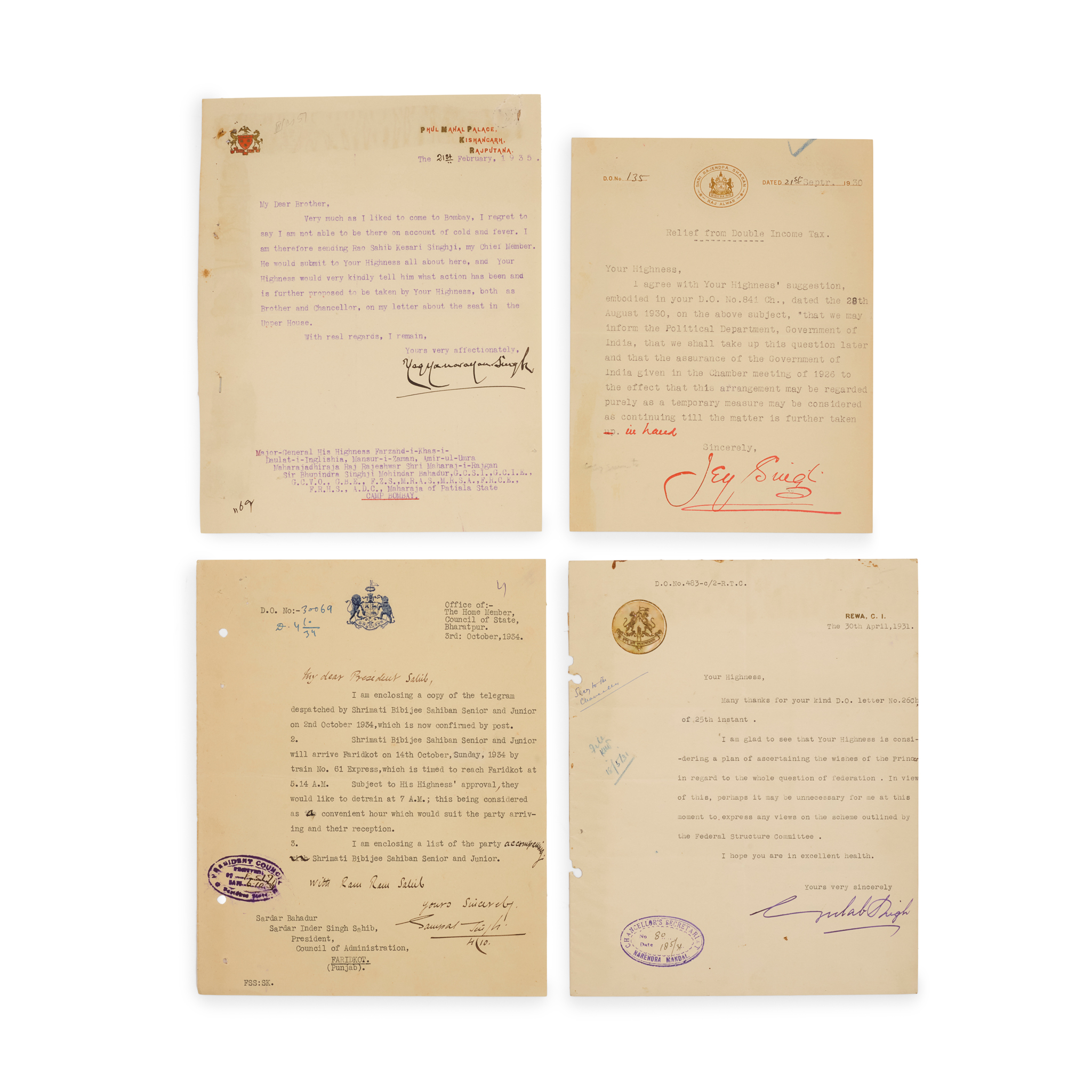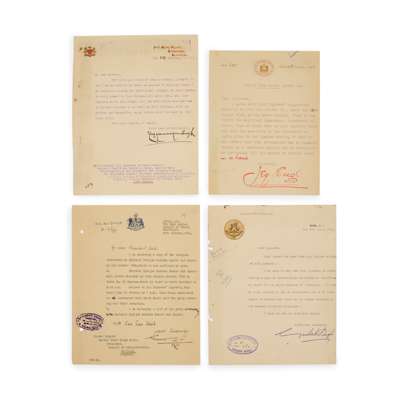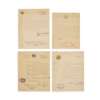
Lot 44

India - Princely States
Collection of typed letters signed from Indian rulers, 1930s-40s


Auction: 02 October 2025 from 10:00 BST
Description
all addressed to the presiding chancellor of the Chamber of Princes (Narendra Mandal), on financial and constitutional matters, accession to the chamber, boundary disputes, and similar, 26 in total, all on the relevant ruler's official stationery with embossed crest to head (one crest, that of Gulab Singh, maharaja of Rewa, in mother-of-pearl) and his autograph signature in ink to foot, mainly 4to (approx. 22.5 x 17.5cm), marginal pin-holes, adhesive residue on versos, various official annotations and ink-stamps, authors comprising the maharajas (or rajas) of: Patiala (2 letters, both written from his palace at Chail), Porbandar (i.e. Natwarsinhji Bhavsinhji (1901-1979), Indian Test cricketer), Kotah, Dungarpur (2 letters), Dhrangahdra (requesting more information on correspondence between Hamidullah Khan, chancellor of the Chamber of the Prices, and Jawaharlal Nehru), Suket (3 letters, one on the mobilisation of Indian troops, 1936, one on the distribution of petrol in wartime, 1941), Sawantwadi, Cambay, Palanpur (2 letters), Alwar, Kishangarh, Jaisalmer, Dewas (2 letters), Jhalawar, Bhushahr, Faridkot, Poona, and Dholpur, and to the Nawabs of Rampur and Tonk (partially split along one fold). Together with 4 similar letters (one from the heir apparent, Maharaj Kumar, of Jagatjit Singh, Maharaja of Kapurthala, 1919; one from the British agent to the governor-general, Panjab States; and 2 from unidentified authors) heir apparent (Maharaj Kumar) of Jagatjit Singh, Maharaja of Kapurthala, 1919 (a folder)
Footnote
The Chamber of Princes, or Narendra Mandal, was established in 1921 by order of George V. Its first chancellor was Ganga Singh, maharaja of Bikaner, who was succeeded by the maharajas of Patiala, and of Nawanagar, and finally by Hamidullah Khan, nawab of Bhopal. It was intended by the British to be an advisory body only, with executive power remaining with the Government of India, though it provided an official forum for political activity on the part of native Indian leaders in the decades leading to independence, when the chamber was dissolved.

